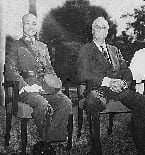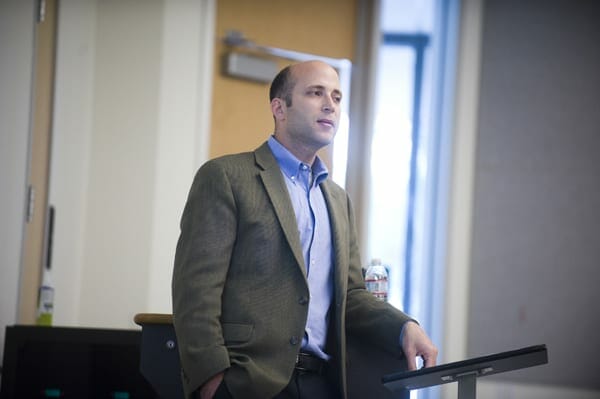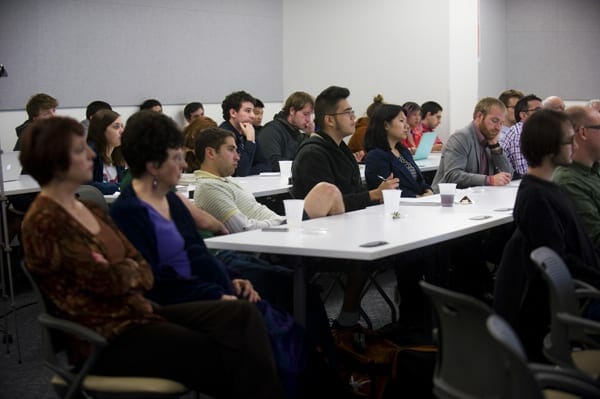By Program

The Fourth Policeman: FDR’s Vision for China’s Global Role
April 10, 2013 | 5:15:00 | Sid Richardson Hall, Room 3.124
 In his April 10th lecture, Erez Manela discussed the question of why President Roosevelt wanted China to be one of the four great powers after the end of World War II. He explained that it is an interesting question because it had never been seriously considered, and because the current explanations are not satisfactory. Roosevelt championed a new international order after World War II, which he hoped would mitigate future conflict by disarming the world with the exception of four countries. Roosevelt wanted these “four policemen” of the new international order to be the United States, Great Britain, the Soviet Union, and China.
In his April 10th lecture, Erez Manela discussed the question of why President Roosevelt wanted China to be one of the four great powers after the end of World War II. He explained that it is an interesting question because it had never been seriously considered, and because the current explanations are not satisfactory. Roosevelt championed a new international order after World War II, which he hoped would mitigate future conflict by disarming the world with the exception of four countries. Roosevelt wanted these “four policemen” of the new international order to be the United States, Great Britain, the Soviet Union, and China.

Manela explains that the reasons for Roosevelt’s support for China as a great power were not obvious. At the time China was relatively weak, and as a result, Roosevelt faced significant resistance from the other allied powers. China’s economy and military were not nearly as strong as the other great powers, so the idea that China could join their ranks strained credulity. In addition, Winston Churchill was opposed to China’s inclusion as one of the policemen because he believed the Chinese would support U.S. efforts to dismantle the old colonial empires. Joseph Stalin refused to even meet with Chinese representatives. To make matters worse, even Chiang Kai-Shek himself was not enamored with the idea.

Manela concludes by explaining that there are three reasons why Roosevelt wanted China to become a ‘policeman.’ The first was that Roosevelt wanted to support the principle of self-determination in a world still imbued with colonialism. As Churchill had feared, Roosevelt wanted the Chinese to support the Americans countering British colonial power. Secondly, Roosevelt wanted to ensure the new world order was built with racial equity, and felt this could be achieved by including a non-white power. Finally, Roosevelt believed the inclusion of China would increase the legitimacy of the new world order in the eyes of non-western countries. In the end, Roosevelt’s vision for China was not realized due to political instability in China after World War II, and the subsequent civil war that saw Chiang’s Nationalist government fall from power. The emergence of the Cold War and strong anti-communist feelings in the US in the early 50’s made engagement with the PRC under Mao all but impossible.
To see the talk in full, check out the video below:
Erez Manela is professor of history at Harvard University, where he teaches international history and the history of the United States in the world. He is the author of the prize-winning book The Wilsonian Moment: Self-Determination and the International Origins of Anticolonial Nationalism (2007) and co-editor of The Shock of the Global: The 1970s in Perspective (2010). Professor Manela is currently completing a book that situates the World Health Organization’s global smallpox eradication program in the 1960s and 1970s within the broader history of the postwar era and also co-editing a volume, Empires at War, 1912-1923, which will explore the history of World War I as a war of empires, rather than nation-states. His most recent research focuses on Sino-American relations in World War II.


